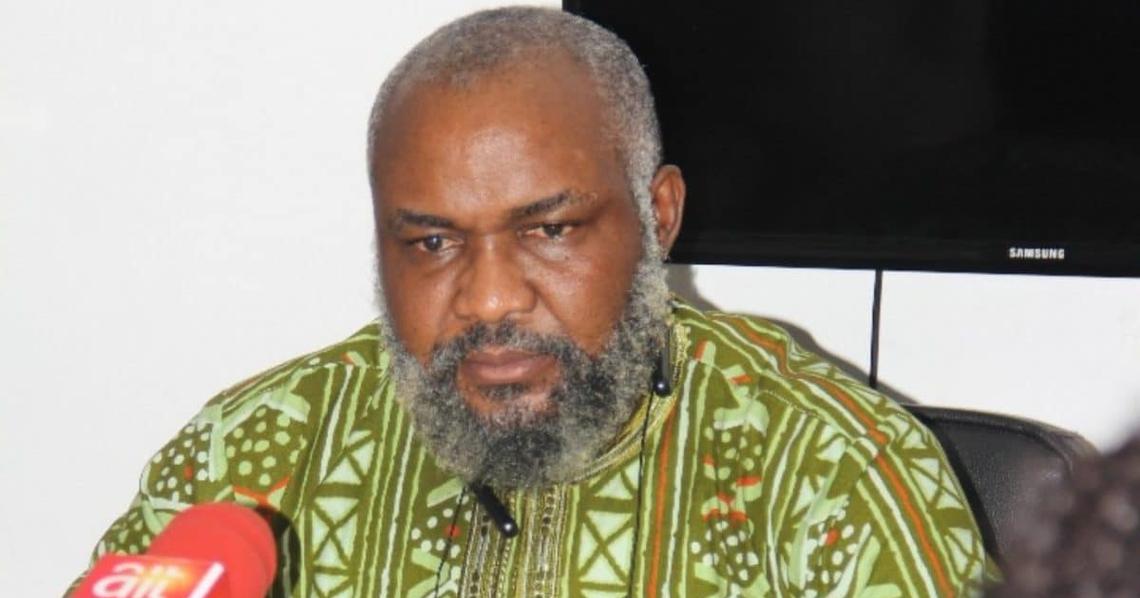News
HURIWA blasts Igbo govs over ‘leadership vacuum’ amid rising insecurity in Southeast

The Human Rights Writers Association of Nigeria (HURIWA) has strongly condemned the alarming spate of killings, terror attacks, and ritual-related crimes sweeping across the Southeast, warning that the region is fast descending into anarchy due to a glaring leadership vacuum.
The group particularly decried the gruesome massacre of residents in three Arondizuogu communities in Imo State, the daylight invasion of Ehime Mbano, and the horrific murder of a pregnant nurse in Anambra State.
In a press statement issued on Wednesday in Abuja, HURIWA expressed grave concern over the increasing frequency of targeted attacks and ritual killings, noting that the Southeast appears to be unraveling under the weight of unaddressed insecurity, lawlessness, and governmental neglect.
“The bloodshed in Arondizuogu, the gunfire in Ehime Mbano, and the abominable murder in Ogbunike are not isolated incidents. They are coordinated signs of an expanding theatre of war against the people of the Southeast,” declared Comrade Emmanuel Onwubiko, HURIWA’s National Coordinator.
The group described the recent coordinated attack on three Arondizuogu communities—Ejezie, Umualaoma, and Ndiakuwata Uno in Ideato North Local Government Area—as an “abomination” and “a desecration of Igbo values, traditions, and humanity.” At least seven persons were reportedly killed by suspected members of the Eastern Security Network (ESN) in the massacre, with many more displaced and traumatized.
“What happened in Arondizuogu is not just a crime—it is an affront to our collective conscience,” said Onwubiko. “These victims were not just statistics—they were fathers, mothers, youths, and children. They were our people. The silence from political leaders is not just shameful—it is dangerous.”
HURIWA lambasted Imo State Governor, Senator Hope Uzodinma, for failing to visit the affected communities or issue a reassuring statement. Instead, the group noted with disappointment that the governor remained in Abuja, hosting members of the Super Falcons, while his home state mourned.
“This is the height of insensitivity and a clear indication of the disconnect between the political elite and the suffering masses,” the statement said.
Citing the early morning attack on Umualuaku community in Ehime Mbano, where gunmen yet to be identified surrounded the area and kept residents hostage amid sporadic gunfire, HURIWA described the situation as part of a “rising pattern of coordinated armed insurgency.”
“Entire communities are being abandoned to their fate, with citizens forced to live in fear, and security agencies stretched thin,” the group warned.
Further heightening the atmosphere of fear and moral decay, HURIWA condemned the ritual killing of a pregnant nurse in Ogbunike, Anambra State, saying the victim’s dismembered remains were discovered in a soakaway pit, and police have confirmed that the body parts were sold to native doctors for ritual purposes.
“This is one of the most horrifying crimes ever reported in the Southeast,” HURIWA stated. “It confirms the entrenchment of ritual killings and organ trafficking in the region. This is a complete moral collapse and a failure of law enforcement and social safeguards.”
The group drew attention to the broader implications of these violent crimes, noting that the absence of a unified regional security strategy—such as that of the Southwest’s Amotekun Corps—has left the Southeast exposed to violent non-state actors and criminal elements.
HURIWA criticized the Southeast Governors Forum for its inability to forge a common front to combat insecurity and urged immediate steps toward regional collaboration. “Unless urgent and collective action is taken, more communities risk falling into lawlessness, and the entire region may become a humanitarian disaster zone,” the group said.
Referencing recent remarks by human rights lawyer and lead counsel to the Indigenous People of Biafra (IPOB), Barrister Ifeanyi Ejiofor, HURIWA endorsed his call for decisive leadership among Igbo elites. Ejiofor had described the Arondizuogu killings as a “dark chapter” that marked the breakdown of state authority and the erosion of communal values.
“What unfolded in these peaceful communities was not just another act of violence. It was a brutal reminder of our crumbling humanity and the slow, painful death of our shared conscience,” Ejiofor had said. HURIWA stated that these words accurately capture the emotional and moral decay now afflicting the region.
The rights group therefore called for an emergency summit involving Southeast political officeholders, traditional rulers, civil society groups, religious leaders, and the newly inaugurated Ohanaeze Ndigbo leadership under Senator Mbata. According to HURIWA, the summit should prioritize the development of a coordinated security architecture, as well as address the prolonged detention of IPOB leader, Mazi Nnamdi Kanu, which remains a major flashpoint.
“It is no longer acceptable for a region to bleed in silence,” HURIWA said. “The killings in Arondizuogu, the attacks in Ehime Mbano, and the ritual murders in Anambra demand urgent, united action. Alaigbo must not be reduced to a wasteland of unburied corpses and unhealed trauma.”
HURIWA also urged President Bola Ahmed Tinubu to demonstrate that every region of Nigeria matters by directing security agencies to prioritize the Southeast in national security operations. The group further advocated for non-partisan peacebuilding mechanisms and community-based intelligence networks to bolster security efforts.
In conclusion, the group made a passionate appeal for unity and swift action, stating that the bloodshed must stop before the Southeast becomes a memory.
“Let there be no more silence. Let there be no more blood. The killings in Arondizuogu must be the final straw. Let leaders rise before Alaigbo collapses completely,” HURIWA warned.






















